Dogs are incredible companions, bringing joy and love into our lives. However, being a responsible dog owner requires more than just providing food and shelter. It also involves proper training, understanding, and care. Even the most knowledgeable dog owners can make mistakes that affect their furry friend’s well-being. In this article, we will explore common mistakes dog owners make and provide guidance on how to avoid them. By being aware of these pitfalls and making the necessary adjustments, you can ensure a happier and healthier life for both you and your beloved canine companion.
Common Mistakes Dog Owners Make
Owning a dog comes with tremendous joy, but it also entails great responsibility. To ensure the well-being of your furry friend, it’s important to avoid certain mistakes that can negatively impact their health and happiness. Let’s delve into some of these common mistakes dog owners make and discover practical solutions to rectify them.
Mistake #1: Constantly Feeding Them Treats

Feeding treats to your dog can be an effective way to reward good behavior and strengthen the bond between you and your pet. However, relying too heavily on treats can lead to unwanted consequences.
Your dog may become overly focused on food and lose interest in other forms of motivation. It’s important to strike a balance and use treats judiciously. Instead, explore different ways to reward your dogs, such as playtime or a belly rub, based on their preferences.
Dog Owners Mistake #2: Leaving Your Dog in a Hot Car
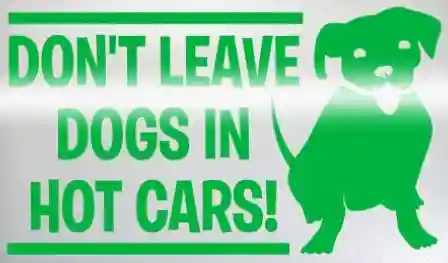
Leaving your dog in a parked car, even for a short time, can have fatal consequences. The temperature inside a car can rise rapidly, posing a severe threat to your furry friend’s health. Never underestimate the dangers of heatstroke. If you need to run errands, it’s best to leave your dog at home, where they are safe and comfortable.
Common Mistake #3: Waiting to Punish Your Dog
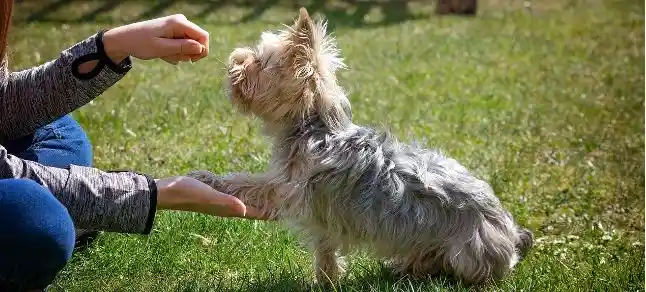
Addressing bad behavior promptly is crucial for effective dog training. Dogs associate punishment with their actions when it happens immediately. Delaying reprimands will only confuse your pet and make it challenging for them to understand what they did wrong. Corrective measures should be timely and consistent, allowing your dog to make the connection between their behavior and the consequences.
Dog Owners Mistake #4: Not Understanding Your Dog’s Favorite Rewards
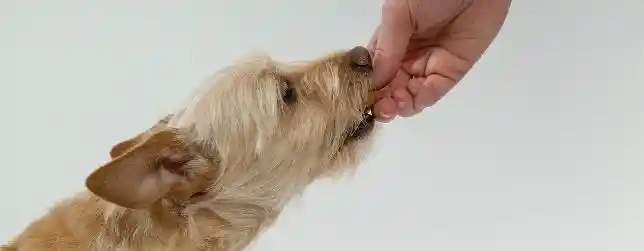
Just like humans, dogs have unique preferences when it comes to rewards. While some dogs may find playing with a ball exhilarating, others may enjoy a gentle belly rub more. Understanding what motivates your dog will enable you to reward them effectively and strengthen the positive behaviors you desire.
Mistakes Dog Owners Make #5: Using Harsh Cleaning Products

When cleaning your home, it’s important to be mindful of the products you use. Some cleaning agents, such as bleach and ammonia, can be hazardous to your dog’s health. Dogs can absorb toxins through their paws, especially if they walk on wet floors. Opt for pet-friendly cleaning products to ensure the well-being of your furry companion.
Dog Owners Mistake #6: Not Using a Seat Belt for Your Dog

Just like humans, dogs should wear seat belts when traveling in a vehicle. Unrestrained dogs pose a risk to themselves and others in the event of an accident. Investing in a dog seat belt or a secure crate will ensure their safety during car rides.
Mistake #7: Dropping the Leash and “Forcing” an Interaction

Encouraging your dog to socialize and make friends is essential for their mental and emotional well-being. However, introducing your dog to other dogs without proper control can lead to unpredictable situations. It’s advisable to keep your dog on a leash during initial interactions to assess its comfort level and prevent any potential conflicts.
Mistake #8: Thinking Your Dog Chews Your Shoe as Revenge

Many dog owners mistakenly believe that their dog chews shoes or other items as an act of revenge. In reality, this behavior often stems from separation anxiety or boredom. Identifying the root cause is vital, and taking appropriate measures to address it is vital. Providing mental stimulation, sufficient exercise, and chew toys can help alleviate this destructive behavior.
Dog Owners Mistake #9: Feeding Your Dog off Your Plate
Sharing your food with your dog may seem harmless, but it can lead to numerous issues. Firstly, it encourages begging and reinforces undesirable behavior. Moreover, certain human foods can be toxic to dogs and may cause digestive problems or even poisoning. Stick to a balanced and appropriate diet for your dog’s specific nutritional needs.
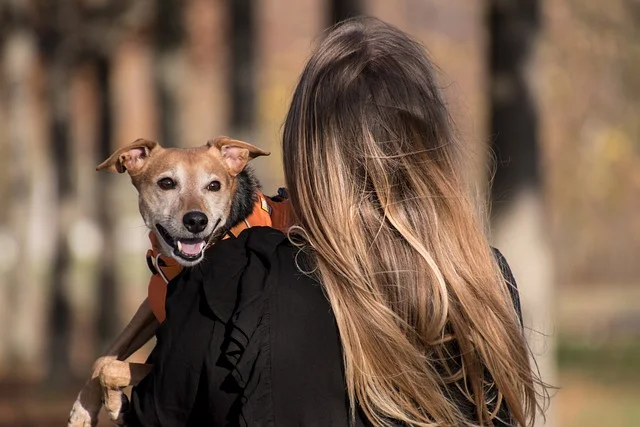
Dog Owners Mistake #10: Overfeeding Your Dog
Expressing love for your dog through food can inadvertently lead to overfeeding. Obesity is a common health problem among dogs, with numerous associated complications. It’s essential to follow proper feeding guidelines, monitor their weight, and incorporate exercise into their routine to maintain a healthy lifestyle.
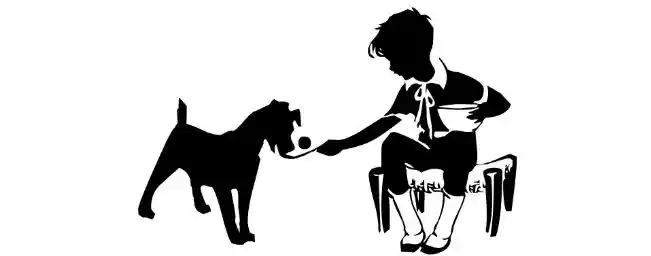
Common Mistakes Dog Owners Make #11: Lecturing Your Dog
Dogs respond best to clear and concise cues rather than lengthy lectures. While it’s natural to want to explain right from wrong to your furry companion, they are more likely to comprehend simple commands. Keep your instructions straightforward and consistent to foster effective communication and promote desirable behaviors.
Mistake #12: Never Letting Your Dog Run Off-Leash
Dogs thrive on exercise and mental stimulation, and off-leash time is essential for their well-being. Allowing your dog to run freely in a safe and secure environment enables them to explore, socialize, and expend their energy. Of course, this should be done in designated off-leash areas or enclosed spaces to ensure their safety.
Common Mistakes Dog Owners Make #13: Not Putting a Microchip in Your Puppy
Microchipping your puppy is a crucial step in ensuring their safety. If your dog ever goes missing, a microchip can significantly increase the chances of them being reunited with you. This tiny implant contains your contact information, making it easier for shelters and veterinary clinics to identify and return your beloved pet.

Mistake #14: Not Registering the Microchip
Having a microchip is only effective if it’s properly registered. Take the necessary steps to register your dog’s microchip in the appropriate database, based on your country or region. This will ensure that your contact information is up-to-date and easily accessible in case of an emergency.
Common Mistake #15: Comforting Your Dog When They Whimper
It’s natural to want to comfort your dog when they whimper or show signs of distress. However, doing so may unintentionally reinforce their fear or anxiety. Instead, try to remain calm and provide reassurance through your presence and a soothing tone of voice. Over time, your dog will learn to manage their emotions more independently.
Mistake #16: Overestimating Your Dog’s Intelligence
While dogs can be incredibly smart and trainable, it’s important to remember that they have their limitations. Comparing their intelligence to that of a human can lead to unrealistic expectations. Dogs rely on consistent training, clear cues, and reinforcement to understand and follow commands.
Dog Owners Mistake #17: Telling Your Dog to Stop Barking
Yelling at your dog to stop barking might not have the desired effect. Your dog may interpret it as an invitation to engage in a louder and more enthusiastic barking session. Instead, try using positive reinforcement techniques to redirect their attention and reward them when they remain calm.
Dog Owners Mistake #18: Giving Up on Training Too Soon
Training your dog requires patience and consistency. It’s essential not to give up too soon, even if progress seems slow. Dogs learn at their own pace, and with continued practice and reinforcement, they can develop good behaviors and habits over time. Stick to your training routine and remain persistent.
Mistake #19: Rubbing Your Dog’s Nose in Their Poop or Pee
Rubbing your dog’s nose in their waste as a form of punishment is not an effective training method. Dogs do not understand the connection between their past actions and punishment. Instead, focus on positive reinforcement and reward-based training to encourage appropriate bathroom habits.
Dog Owners Mistake #20: Not Putting Your Dog in Your Will
Considering your dog’s future in your estate planning is essential. Including them in your will ensures that they will be cared for and provided for in the event of your passing. Specify a trusted caregiver or make arrangements with a reputable animal welfare organization to ensure your dog’s well-being.
Dog Owners Mistake #21: Reinforcing Bad Behavior
Laughing or giving attention to your dog when they exhibit unwanted behavior can inadvertently reinforce that behavior. Even if their actions seem amusing or harmless, it’s important to redirect their attention and reward them for positive behavior instead.
Mistake #22: Making Leash-Training a Negative Experience
Leash training is an important aspect of responsible dog ownership. It’s crucial to approach it as a positive experience rather than a form of punishment. Use rewards, praise, and gradual training techniques to teach your dog to walk politely on a leash without feeling stressed or restricted.
Mistake #23: Giving Them Dental Snacks Instead of Brushing Their Teeth
While dental snacks can help maintain oral hygiene to some extent, they should not replace regular toothbrushing. Brushing your dog’s teeth with dog-friendly toothpaste is the most effective way to prevent dental issues such as tartar buildup, gum disease, and tooth decay.
Mistake #24: Giving Your Dog a Toy When They Chew Your Shoes
Offering your dog a toy or bone as a distraction when they chew on your shoes can unintentionally reinforce the undesirable behavior. Instead, provide appropriate chew toys and redirect their attention toward those toys when they display chewing tendencies.
Dog Owners Mistake #25: Neglecting Daily Walks
Daily walks provide physical exercise, mental stimulation, and an opportunity for dogs to explore their surroundings. Neglecting or shortening your dog’s walks can lead to restlessness, boredom, and behavioral problems. Make time for regular walks to ensure your dog’s overall well-being.
Mistake #26: Relying Solely on Your Dog’s Groomer
While professional grooming is important, it’s essential to supplement it with regular at-home grooming. Brushing your dog’s coat, cleaning their ears, and trimming their nails are tasks that should be performed in between professional grooming sessions.
Dog Owners Mistake #27: Not Properly Vetting Your Dog Sitter
When entrusting your dog’s care to a sitter, it’s vital to thoroughly vet their qualifications and experience. Check references, read reviews, and conduct interviews to ensure that your dog will be in capable and caring hands while you’re away.
Mistake #28: Asking a Friend to Watch Your Dog for the Weekend
While friends may have good intentions, they might not possess the necessary knowledge and expertise to handle unexpected situations or emergencies. It’s advisable to hire a professional dog sitter or choose someone who has experience in dog care to ensure your pet’s well-being during your absence.
Mistake #29: Expecting All Your Pets to Get Along Immediately
Introducing a new dog to your existing pets requires careful management and patience. It’s unrealistic to expect immediate harmony between all the animals involved. Gradually introduce them to neutral territory, provide positive reinforcement for good behavior, and seek professional advice if necessary.
Dog Owners Mistake #30: Placing Flowers on a Low Table
Certain plants and flowers can be toxic to dogs if ingested. Placing them on low tables or surfaces within your dog’s reach increases the risk of accidental ingestion. Ensure that your home is free from potentially harmful plants, or keep them in areas inaccessible to your dog.
Frequently Asked Questions (FAQs)
Can I use treats for training my dog?
Treats can be used as rewards during training, but it’s important not to rely solely on them. Use a variety of rewards, including praise and play, to reinforce positive behaviors.
Is it necessary to microchip my dog?
Microchipping is highly recommended, as it provides a permanent form of identification for your dog. It increases the chances of reuniting with your pet if they ever get lost.
How often should I groom my dog?
The frequency of grooming depends on the breed and coat type of your dog. Some dogs require regular brushing and grooming sessions, while others may need less frequent attention. Consult with a professional groomer for specific recommendations.
What should I do if my dog exhibits separation anxiety?
Separation anxiety can be distressing for both the dog and the owner. Consult with a professional dog trainer or behaviorist who can provide guidance and develop a personalized training plan to help manage this issue.
Can I leave my dog in a hot car for a few minutes?
No, leaving your dog in a hot car, even for a few minutes, can be life-threatening. The temperature inside a car can rise rapidly, leading to heatstroke and potentially fatal consequences. Never leave your dog unattended in a parked car.
Can I train my dog without using treats?
Yes, treats are not the only form of reward during training. Verbal praise, playtime, or other forms of positive reinforcement can motivate dogs. Experiment to find what works best for your dog.
How often should I groom my dog?
The frequency of grooming depends on your dog’s breed, coat type, and individual needs. Generally, regular brushing, bathing as needed, and routine nail trimming are essential for maintaining their hygiene.
Is it necessary to hire a professional dog trainer?
While professional trainers can provide expertise and guidance, many dog owners successfully train their pets at home. It requires patience, consistency, and positive reinforcement techniques.
Can my dog eat any human food?
No, not all human foods are safe for dogs. Some common foods, like chocolate, grapes, and onions, can be toxic to them. Always consult with your veterinarian about what foods are suitable for your dog’s diet.
How can I prevent my dog from chewing on household items?
Providing appropriate chew toys, supervising their behavior, and ensuring they have sufficient mental and physical stimulation can help redirect their chewing tendencies away from household items.
Conclusion
Dog owners come with great joy and responsibility. While we all want the best for our furry companions, it’s essential to be aware of the common mistakes dog owners make. From relying too much on treats to neglecting important aspects of their care, these mistakes can harm your dog’s well-being and behavior. By avoiding these pitfalls and implementing positive training techniques, you can cultivate a loving and balanced relationship with your canine companion.






